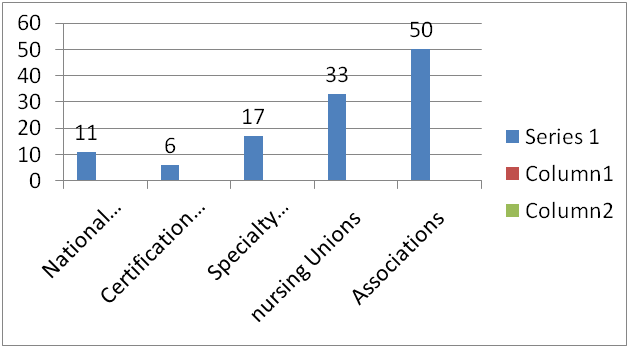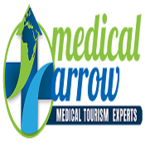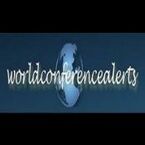Theme: New Innovations & Technologies in Nursing
Nursing Care 2024
Conference Series LLC Ltd welcomes you to attend “41st Global Conference on Nursing Care & Patient Safety” during May 23-24, 2024 at Toronto, Canada with a theme “Challenges and Advancements in Nursing". Conference Series LLC Ltd Organizes 3000+ Global Events with over 600+ Conferences, 1200+ Symposiums and 1200+ Workshops on Medical, Pharmacy, Engineering, Science, Technology and Business.
|
Conference Name |
Place |
Date |
|
41st Global Conference on Nursing Care & Patient Safety |
Toronto, Canada |
May 23-24, 2024 |
Scope and Importance
Nursing Conference aims to discover advances in nursing care, management and education in relation to health disparities as well as a breadth of other topics. According to the reports, total health care spending in USA is 17.9% of total GDP according to 2011 and estimated to show an upward trend of 19.5% of total GDP by 2017. Aggregate U.S. hospital costs were $387.3 billion in 2011—a 63% increase since 1997. Costs per stay increased 47% since 1997, averaging $10,000 in 2011.
Who can attend?
Nursing Conference brings together individuals who have an interest in different fields of nursing like psychiatric, cancer, cardiac, critical care, adult & women health, legal, pediatric and emergency nursing, public health, healthcare and medicine from practice, research, administration, policy and education. It is a forum to explore issues of mutual concern as well as exchange knowledge, share evidence, ideas, and generate solutions.
Target Audience:
Nurses/students, Nursing Researchers, Nursing Faculty, Medical Colleges, Nursing & Midwifery Associations and Societies, Business Entrepreneurs, Training Institutes, Software Developing Companies, Manufacturing Medical Devices Companies, Pharmaceutical Companies, Nurses, Physicians, Assistants, Advanced Practice Nurses, Clinical Research Nurses, and Social Workers with a focus on nursing education.
Why to Attend?
Nursing Conferences provides a global platform for exchanging ideas and keeps on updating about the latest innovations in nursing care and education. Opportunity to attend the presentations delivered by Eminent Scientists from all over the world.
Benefits:
-
Accepted abstracts will be published in Journal of Nursing and Care and provided with DOI.
-
Global networking: In transferring and exchanging Ideas.
-
A Unique Opportunity for Advertisers and Sponsors at this International Event.
Track-01: Nursing Specialities
In the modern world, there are a number of nursing specialities. Professional organizations or certifying boards issue voluntary certification in many of these specialties.Emergency Nursing, Cardiac Nursing, Ambulatory Care Nursing, Diabetes Nursing, Dental Nursing, Geriatric Nursing, Critical Care Nursing, Neonatal Nursing, Pediatric Nursing, Clinical Nursing, Community Health Nursing, Orthopedic Nursing, Surgical Nursing, Perinatal Nursing, Wound Care
Track-02: Nursing Care Plan
A care plan includes client assessment, medical results and diagnostic reports. This is the first step in order to be able to create a care plan. In particular client assessment is related to the following areas and abilities: physical, emotional, sexual, psychosocial, cultural, spiritual/transpersonal, cognitive, functional, age related, economic and environmental. Information in this area can be subjective and objective. Expected patient outcomes are outlined. These may be long and short term. Nursing interventions are documented in the care plan. Rationale for interventions in order to be evidence based care. Evaluation. This documents the outcome of nursing interventions A computerised nursing care plan is a digital way of writing the care plan, compared to handwritten. Computerised nursing care plans are an essential element of the nursing process. Computerised nursing care plans have increased documentation of signs and symptoms, associated factors and nursing interventions.Using electronic devices, nursing care plans became more accurate, accessible, easier completed and easier edited, in comparison with handwritten and preprinted care plans
Track-03: Nursing Process
The Nursing Process is a modified scientific method. Nursing practice was first described as a four-stage nursing process by Ida Jean Orlando in 1958. It should not be confused with nursing theories or health informatics.The diagnosis phase was added later. The nursing process uses clinical judgement to strike a balance of epistemology between personal interpretation and research evidence in which critical thinking may play a part to categorize the clients issue and course of action.The nursing process is goal-oriented method of caring that provides a framework to nursing care.
Track-04: Nursing Informatics
Nursing Informatics is the specialty that integrates nursing science with multiple information management and analytical sciences to identify, define, manage, and communicate data, information, knowledge, and wisdom in nursing practice. It supports nurses, consumers, patients, the interprofessional healthcare team, and other stakeholders in their decision-making in all roles and settings to achieve desired outcomes. This support is accomplished through the use of information structures, information processes, and information technology.
Track-05: Nursing Management
Nursing Management consists of the performance of the leadership functions of governance and decision-making within organizations employing nurses. It includes processes common to all management like planning, organizing, staffing, directing and controlling. It is common for registered nurses to seek additional education to earn a Master of Science in nursing or Doctor of nursing practice to prepare for leadership roles within nursing. Management positions increasingly require candidates to hold an advanced Degree in nursing.
Track-06: Health Diversity
Health Diversity is turning into a key word in health care. Hospitals and health care systems are specializing in providing care that addresses the variety of their patient populations. Hospitals are also operating to extend the variety of their leadership team, board employees and building a culture of diversity and inclusion. Diversity in the nursing field is essential because it provides opportunities to administer quality care to patients.
Track-07: Advanced Technologies in Nursing Care
Because of trend setting innovations, Registered Nurses and Nurse Practitioners has incremented their work process, constraining human mistakes. Major cutting-edge innovations are consolidated in best medical clinics and medicinal services focuses and henceforth it is less testing making it less demanding for the attendants. Some of them are Electronic Records, GPS Following, Real-Time Location Services, Upgraded Diagnostic Devices, Medication Delivery, Lifting Patients Effortlessly, Wireless Communication Systems
Track-08: Nursing Research
Nursing Research is a research that provides evidence used to support nursing practices. Nurses use research to provide evidence-based care that promotes quality health outcomes for individuals, families, communities and health care systems. Nurses conduct research use research in practice and teach about research. Nursing Research mainly involves both quantitative & qualitative procedures.
Track-09: Health Care in Nursing
Nursing is a health care profession that focuses on the care of individuals and their families to help them recover from illness and maintain optimal health and quality of life. Nurses are distinct from other healthcare providers as they have a wide scope of practice and approach to medical care. They play an integral role in promoting health, preventing illness, and caring for all individuals, including those who are disabled or are physically or mentally ill. The basic concepts are Safety in Health Care Facilities, Care of patient unit, Basic Client Care, Advancement in Health Care, Health Care Communications, Primary Health, Health Promotion and Protection
Track-10: Nursing Law
According to state and federal laws, Legal nursing is the medical department based on the legal authorization which provides license to nursing practice. In legal nursing, there are ethical principles that arise for the nurses who work in the correctional setting with respect for Persons beneficence, No maleficence, Justice, Veracity, and Fidelity. They usually do their job in legal issues by recording the professional problems and figures out the medical etymology by consulting them personally.
Planning a Trip to Toronto, Canada!! Attending Meeting!!
An issue with VISA!!
Nursing Care 2024 will be happy to help you in all regards to plan your trip to Toronto, Canada. Avail the official invitation letter from us to attend this event ahead with a closer step for approval of your VISA.
Find out what you need to do to visit Canada as a tourist or business person, how to extend your stay in Canada and what documents you need to carry with you to transit through Canada.
Special EVENT CODE: NC2024
Application Submission:
Canadian Embassy does not have a visa office in every country so it is important that Speakers/Delegates/Attendees visit the website of the visa office responsible for processing their visa applications. Information is available on the website on how to submit a visa application and the documentation required.
Speakers/Delegates/Attendees are encouraged to submit their visa applications well in advance of the date of the event at a Visa Application Centre or on-line E-applications (e-Apps).
E-Apps:
This system allows clients to submit applications online.
Speakers/Delegates/Attendees that need a visa but require their passport for other travel purposes are strongly encouraged to submit their visa applications online (e-Apps). Speakers/Delegates/Attendees that choose to apply online will not have to submit their passport until a decision has been taken on their applications. If required, the visa office will send the applicant instructions on how and where to send their passports to finalize the visa process.
Visa Application Centres (VACs):
VACs are commercial service providers authorized by Canada to provide specific services to applicants.
VACs provide a number of services including help applicants fill out forms, answer questions and ensure that applications are complete, thereby reducing unnecessary delays or refusals due to incomplete applications.
Applicants that are required to provide biometrics information as part of the visa application process can do so at a VAC. Additional information on the biometrics requirements is available at the IRCC website.
VACs send applications to Visa Offices and transmit decisions to applicants in a secure and confidential manner. VACs do not process visa applications and play no role in the decision-making process.
Visa Applications Processing Time:
Processing time for visa applications vary depending on the office and the time of the year. Participants should be encouraged to apply early for their Visa, and to submit complete applications including all supporting documents. Please visit the IRCC website for information on the time it takes to process visa applications at the various visa offices.
NEW - Electronic Travel Authorization (ETA)
As of March 15, 2016, visa-exempt foreign nationals are expected to have an Electronic Travel Authorization (ETA) to fly to or transit through Canada. Exceptions include U.S. citizens and travellers with a valid Canadian Visa. Canadian citizens, including dual citizens and Canadian permanent residents are not eligible to apply for an ETA.
However, from March 15, 2016, until fall 2016, travellers who do not have an ETA can board their flight, as long as they have appropriate travel documents, such as a valid passport. During this time, border services officers can let travellers arriving without an ETA into the country, as long as they meet the other requirements to enter Canada. We invite you to consult the IRCC website regularly for information updates on ETA.
Toronto is the capital city of the Canadian province of Ontario. With a recorded population of 2,794,356 in 2021, it is the most populous city in Canada and the fourth most populous city in North America. The city is the anchor of the Golden Horseshoe, an urban agglomeration of 9,765,188 people (as of 2021) surrounding the western end of Lake Ontario, while the Greater Toronto Area proper had a 2021 population of 6,712,341. Toronto is an international centre of business, finance, arts, sports and culture, and is recognized as one of the most multicultural and cosmopolitan cities in the world.
Canadian Association of Moderate Sedation Nurses
Canadian Association of Nurse Life Care Planners
Canadian Academy of Nursing
Canadian Assisted Living Nurses Association
Canadian Association for the History of Nursing
Canadian Association of Critical Care Nurses
Canadian Association of Legal Nurse Consultants
Canadian Association of Managed Care Nurses
Canadian Association of Neuroscience Nurses
Canadian Association of Nurse Anaesthetists
Canadian Association of Nurse Attorneys
Canadian Association of Nurse Life Care Planners
Canadian Association of Occupational Health Nurses
Canadian Association of Spinal Cord Injury Nurses
Canadian College of Nurse Midwives
Canadian College of Nurse Practitioners
Healthcare in Canada is delivered through the provincial and territorial systems of publicly funded health care, informally called Medicare. It is guided by the provisions of the Canada Health Act of 1984, and is universal. The 2002 Royal Commission, known as the Romanov Report, revealed that Canadians consider universal access to publicly funded health services as a "fundamental value that ensures national health care insurance for everyone wherever they live in the country. Canadian Medicare provides coverage for approximately 70 percent of Canadians' healthcare needs, and the remaining 30 percent is paid for through the private sector. The 30 percent typically relates to services not covered or only partially covered by Medicare, such as prescription drugs, eye care, and dentistry. Approximately 65 to 75 percent of Canadians have some form of supplementary health insurance related to the aforementioned reasons; many receive it through their employers or use secondary social service programs related to extended coverage for families receiving social assistance or vulnerable demographics, such as seniors, minors, and those with disabilities.
In 2021, the Canadian Institute for Health Information reported that healthcare spending reached $308 billion, or 12.7 percent of Canada's GDP for that year. Canada’s per-capita spending on health expenditures ranked 4th among health-care systems in the OECD. Canada has performed close to, or above the average on the majority of OECD health indicators since the early 2000s. Although Canada consistently ranks above the average on OECD indicators for wait-times and access to care, with average scores for quality of care and use of resources. The Commonwealth Funds 2021 report comparing the healthcare systems of the 11 most developed countries ranked Canada second-to-last. Identified weaknesses of Canada's system were comparatively higher infant mortality rate, the prevalence of chronic conditions, long wait times, poor availability of after-hours care, and a lack of prescription drugs and dental coverage.
Leading World Doctors, Registered Nurses, Professors, Research Fellows and many more from leading universities, companies and medical research institutions, hospitals sharing their novel researches in the arena of Nursing, Healthcare & Medicine.
Worldwide Nursing Unions
-
Australian Nursing Federation
-
Canadian Federation of Nurses' Union
-
California Nurses Association/National Nurses Organizing Committee (CNA/NNOC)
-
Democratic Nursing Organisation of South Africa
-
Finnish Union of Practical Nurses
-
Manitoba Nurses' Union
-
National Nurses United
-
New South Wales Nurses' Associations
-
New Zealand Nurses Organisation
-
Pennsylvania Association of Staff Nurses and Allied Professionals
-
Queensland Nurses' Union
-
Royal College of Nursing
-
South African Democratic Nurses' Union
-
Tennessee Nurses Association
-
United American Nurses
-
United Nurses of Alberta
-
Washington State Nurses Association
-
New York State Nurses Association
Conference Highlights
To share your views and research, please click here to register for the Conference.
To Collaborate Scientific Professionals around the World
| Conference Date | May 23-24, 2024 | ||
| Sponsors & Exhibitors |
|
||
| Speaker Opportunity Closed | |||
| Poster Opportunity Closed | Click Here to View | ||
Useful Links
Special Issues
All accepted abstracts will be published in respective Our International Journals.
Abstracts will be provided with Digital Object Identifier by






